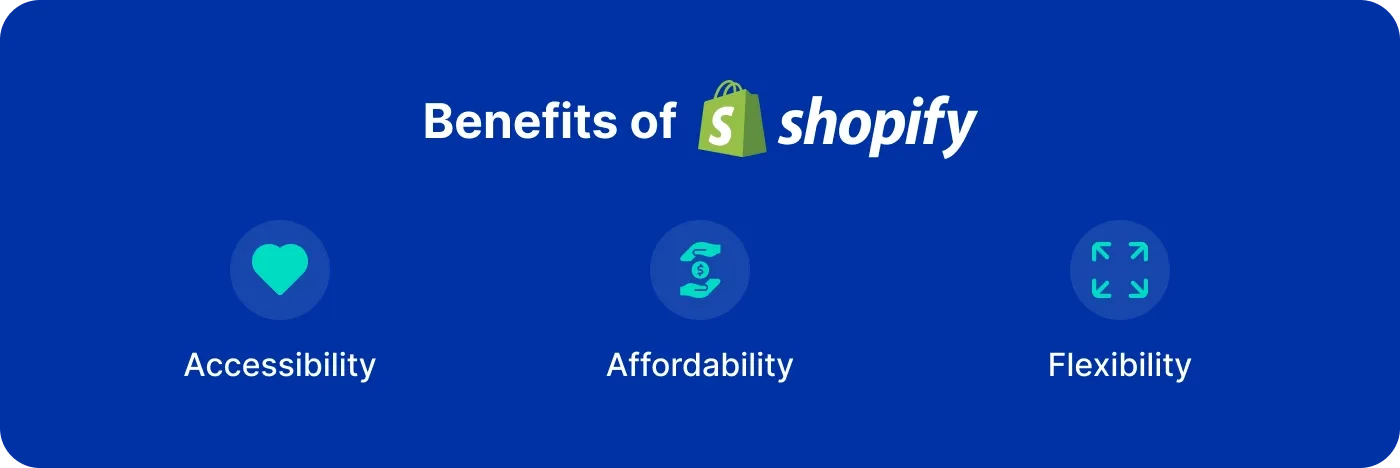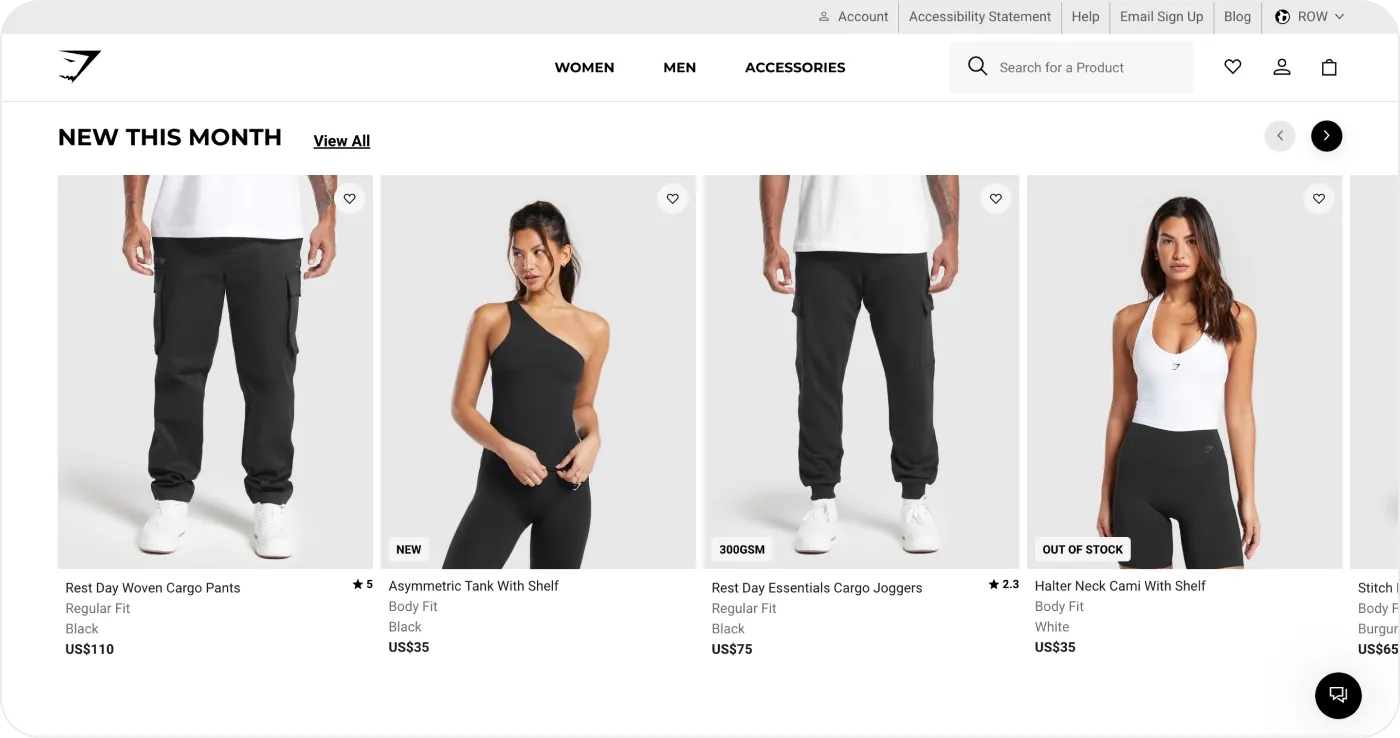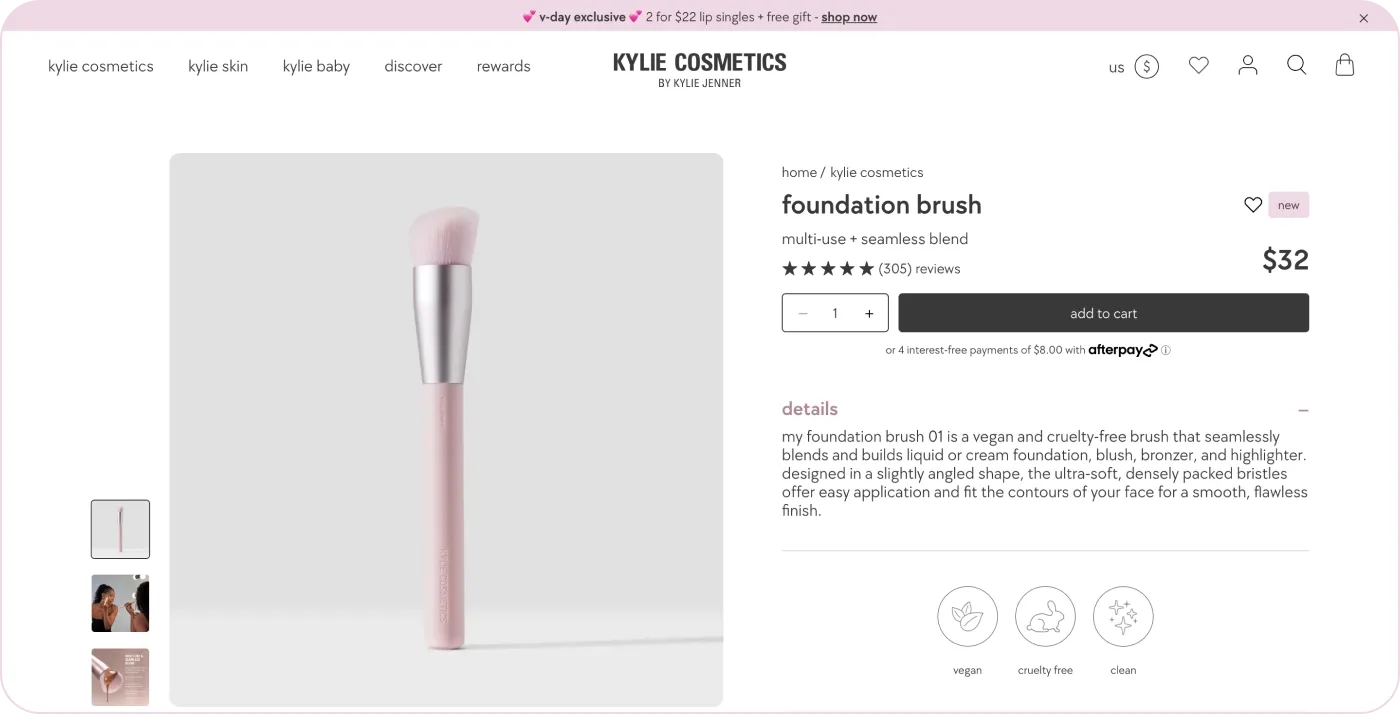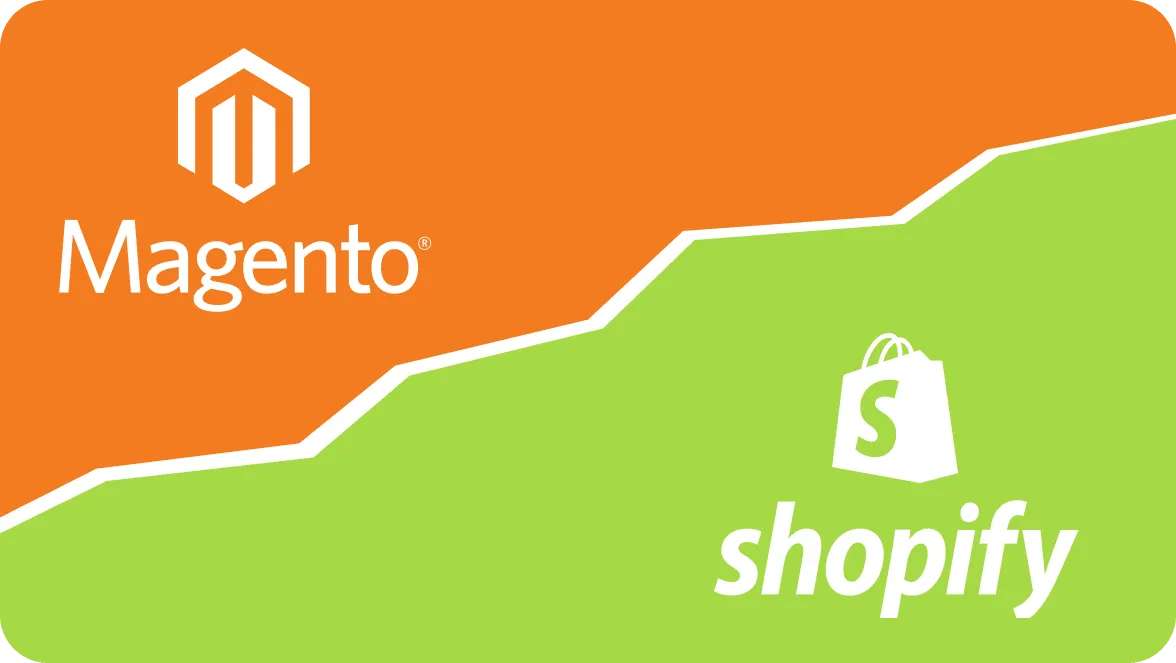
In the dynamic trading ground, choosing the right e-commerce platform is the key for businesses aiming to survive online. Two major players in this arena are Shopify and Shopify Plus. They are targeting different market segments with unique solutions. Stepping into 2024, the differences between these platforms have evolved. They give businesses much to evaluate between features, price structures, and benefits.
To know the major differences between Shopify and Shopify Plus, you need to read this article. By comparing their individual characteristics, pricing models, and benefits, we aim to offer companies the knowledge to formulate sound strategies in light of the e-commerce market's current realities. Regardless of whether you are a growing new business trying to set up an online presence or a large-scale enterprise requiring advanced customization and scalability, knowing these differences is essential. With us, you will explore what the difference is between Shopify and Shopify Plus. You will also discover the particularities that make them viable options for businesses with different sizes and ambitions in an ever-changing e-commerce scene. With that said, let’s start our journey!
Understanding Shopify vs Shopify Plus
Shopify serves as an accessibility torch in the e-commerce world. Initially developed as a platform-user-centric, it easily allows small businesses to launch into the digital market. Its user-friendly interface and easy setup procedure enable entrepreneurs to start and run their online shops seamlessly. With essential options such as customizable themes, trustworthy payment processes, and solid inventory management tools, Shopify provides its merchants with all they need to take their e-commerce journey.
Yet, Shopify Plus comes out as the peak of elegance. It satisfies the needs of complex merchants with high-volume orders and enterprise-level businesses. Capable of handling complex requirements and easily scalable, Shopify Plus is a suite of powerful features and customization. From custom checkout experiences and API access to automation capabilities and multi-channel selling, businesses can build tailored solutions that match their requirements and goals. In addition, Shopify Plus offers individualized support from its dedicated account managers. It's giving businesses adequate assistance to negotiate the dynamics of the digital terrain confidently.
Shopify is just the door to the e-commerce universe, while Shopify Plus is a stronghold of invention and expansion aimed at the multiple goals of the determined merchants. They constitute a vibrant system that ensures success for businesses in the changing e-commerce market.
Feature comparison
The comparison of Shopify vs Shopify Plus features indicates the scope of the tool's implementation of the business needs.
Its availability and simplicity characterize Shopify. It offers a full set of strict essentials for business companies of any size. It also provides customizable themes. Merchants can create visually appealing online stores that match their brand identity. Secure payment processing enables smooth transactions and robust inventory management tools facilitate the tracking of products by businesses efficiently. Furthermore, fundamental analytics tools help merchants have relevant data on customer behavior and sales performance, which aids them in making the correct choices to improve their operations.
On the other hand, as a Shopify web development company we can claim that Shopify Plus is on a highly advanced scale with feature sophistication. The platform focuses on big corporations and target businesses. Personalized checkout experiences which are tailored majorly to meet business-specific requirements, increase the overall customer experience. Access to API ensures effortless integration with external systems and applications, thus contributing to the automation and optimization of workflows.
Multi-channel selling capacities enable businesses to grow their presence across different online platforms and marketplaces, thus boosting sales. Besides, Shopify Plus provides personalized support from dedicated account managers, allowing you to receive individualized counsel and direction to effectively utilize the platform.
Though Shopify gives a strong framework of key features appropriate for the beginning of e-commerce businesses, Shopify Plus offers a rich set of advanced functionality meant for high-volume merchants and enterprises. Through comprehending feature comparisons between Shopify and Shopify Plus, companies can decide which product suits their aim and target most for sustainable growth and success within the competitive e-commerce market.
If you like to see some features in real-life examples, then DigitalSuits has many Shopify success stories we are proud of. For example, you can check out how we have conducted Shopify store development for a gardenplants retailer and even more in our portfolio.
Pricing structures
Comprehending the Shopify vs Shopify Plus pricing is necessary for businesses to plan their budgets and opt for the option that suits them best.
Let’s look at the Shopify pricing comparison. Shopify adopts a tiered pricing model, offering monthly plans from $29 to $299. Starting at $29 per month, the basic plan offers basic features, including website hosting and access to the Shopify platform. As businesses grow, they could switch to higher-tier plans like the Shopify plan, which costs $79 per month, or the advanced Shopify plan, which costs $299 per month. These plans offer more features like advanced reporting and lower transaction fees.
Looking further into the Shopify price comparison, the Shopify fee structure also includes transaction fees (on top of the monthly fee), assessed on every sale facilitated by the platform. The fees are between 2.9% + $30 for the online credit card fees on the Basic plan and 2.4% + $30 for the Advanced Shopify plan.
Summing up Shopify plans comparison, businesses have additional expenses for add-ons ranging from premium themes to apps that improve their site’s functionality and customization.
On the contrary, Shopify Plus rates follow a customized pricing model created to fit the particular demands of every business. The base monthly fee boasts a value of around $2,000 per month, but the total cost fluctuates depending on transaction volumes and features demanded by the business. Not only that but Shopify Plus customers can benefit from customized support and dedicated account management, which may involve paying extra fees depending on the needed level of service.
In a nutshell, if you are a business of any size, Shopify promises to offer affordable and transparent plans ideal for your needs. However, Shopify Plus has a flexible pricing model to meet the scalability and individual needs of high-volume merchants and enterprise-level businesses. Through an acquaintance with Shopify Plus and Shopify plan comparison, firms are able to make wise decisions that meet both the budget and the growth goals.
Benefits of Shopify

Accessibility
One of the main differences between Shopify and Shopify Plus is that Shopify offers a user-friendly interface that enables one to set up and manage online stores without having technical expertise. This accessibility makes businesses seamlessly enter e-commerce in terms of both skills and background.
Affordability
Provided that small to medium-sized businesses are their target users, Shopify online merchants strive to offer alluring cost-effective pricing deals to launch their online businesses. This affordability for many entrepreneurs is that it reduces the initial investments while longer-term returns increase, making Shopify an attractive option for entrepreneurs with meager resources.
Flexibility
Another difference between Shopify Plus and Shopify is the latter's flexibility, thanks to the variety of customizable themes and apps in the Shopify App Store. Businesses have the liberty to customize their websites to match their brands as well as performance requirements. Whether it's refining design elements or incorporating certain features, Shopify helps businesses build a distinctive online presence that captures their core target audience.
In general, Shopify stands for accessibility, affordability, and flexibility, thus making it the top option when entering the global e-commerce market. Shopify simplifies the selling process for businesses through its user-friendly platform, affordable pricing plans, and top-notch customization capabilities, enabling them to thrive in the tough e-commerce environment. Whether your position is a budding startup or an established brand Shopify gives you an adaptable and scalable option that can cater to different e-commerce needs and aspirations.
Benefits of Shopify Plus

Scalability
Shopify Plus is an engineered platform that handles large traffic volumes and wide-scale operations, allowing businesses to expand with minimal restrictions. In this way, a business can grow gradually, ensuring that an online brand will not run apart from the space on the platform.
Advanced features
A notable difference between Shopify and Shopify Plus difference is its in-build rich set of advanced features and tools. Shopify Plus offers businesses customized checkout features and a centralized API to automation capabilities—all intended to create exceptional and personal shopping experiences for customers. Incentivizing businesses work through the smart and distinctive features that make customers engage and raise their profits.
Dedicated support
Shopify Plus services the needs of its clients beyond the customer support services. Every Shopify Plus account is given a personal account manager who provides customized consultations and directions to fine-tune the online store's performance. This special support guarantees businesses receive help in time when they face difficulties or are planning the implementation of new ideas. Shopify Plus users will enjoy a smoother communication channel thanks to this single point of contact and expert advice that will enable them to tap into the full potential of their websites.
In brief, comparing Shopify Basic vs Shopify Plus, the latter gives various advantages suitable for the needs of large-volume merchants and enterprise-level companies. Shopify Plus’s scalability, high-end features, and exclusive support deliver powerful tools and resources that help businesses grow in a competitive e-commerce space. Be it the volume of operations, new features, or personalized support, Shopify Plus helps businesses realize their goals and hit the bullseye in the realm of the digital marketplace.
Case studies and success stories
In the world of Shopify Plus vs Shopify Advanced, there are plenty of case studies and stories of success. They all show how these platforms have revolutionized businesses and led them to achieve e-commerce success.
Shopify has been a valuable tool in helping many entrepreneurs achieve their ambition of setting up and nurturing online businesses. From small startups to established companies, businesses from various industries use Shopify’s friendly user interface and rich collection of features to have a powerful online presence to generate sales. For example, Gymshark and MVMT Watches have been highly successful by adopting the Shopify ecommerce solution to engage with global customers and drive substantial revenue.

Compared to that, Shopify Plus has proved crucial for large merchants and enterprise-level businesses in terms of growth and expansion. Through advanced features and customization options, Shopify Plus allowed businesses to drive innovation while scaling operations and driving growth. Such brands as Kylie Cosmetics and Fashion Nova conduct business on a Shopify Plus platform that allows them to handle high orders, adapt their checkouts, and create a shopping experience that matches their customer’s needs. Our company has experience in migrating from an omnichannel commerce platform to Shopify Plus.

These case studies and success cases highlight the important impact of Shopify and Shopify Plus in different business sizes and different industries. Not only is Shopify the tool of choice for launching the first online store by startups, but for growing existing businesses, Shopify Plus is the crucial instrument. Offering hands-on use cases of companies succeeding on these platforms, entrepreneurs gain knowledge of how they could use such services to realize their own e-commerce aspirations and gain continued growth in the digital marketplace.
Considerations for decision-making
In the comparison between Shopify and Shopify Plus, each of the factors is being considered separately, and all the factors together determine the suitability of the platform in each case.
The business size is an essential factor to be considered first. The affordable pricing plans and essential features offered by Shopify make it suitable for small to medium-sized businesses, thus making the platform ideal for startups and growing ventures. Alternatively, Shopify Plus is suitable for merchants with high volumes and enterprise-level businesses that depend on advanced functionalities and scalability to keep up with their extensive operations.
Budget is yet another factor to consider. Unlike Shopify versions that offer affordable pricing plans for companies with scarce resources, Shopify Plus uses a customized pricing model that implies greater initial investment. Businesses should evaluate the budget constraints and consider the long-term advantage of one medium against them.
Growth projections also impact heavily on the decision-making process. Businesses with big growth ambitions and predictions may find Shopify Plus the best option, due to its scalability and excellent features that are helpful in expansion and managing increasing transaction load over time.
In addition, feature specifications should be thoroughly checked. Businesses must get the specific features and functionalities that will help them achieve their objectives, whether those will be custom checkout experiences, API access, or multi-channel selling abilities. Shopify Plus provides a complete selection of sophisticated individual tools that match up to complex needs, while Shopify offers the basis of the key features you need for various growth stages.
Finally, when picking between Shopify and Shopify Plus, enterprises have to weigh up criteria, including their size, budget, projections for growth, and specific feature needs. Analyzing these factors alongside the capabilities and limitations of each platform will enable firms to arrive at decisions based on their unique needs and requirements ensuring that they are well-positioned to compete in the e-commerce environment.
Conclusion
To sum up, Shopify and Shopify Plus represent two sturdy pillars of the e-commerce landscape, each with an offer that meets the demands of various market needs and targets. By understanding the core differences in terms of features, and pricing models and having Shopify Plus and Shopify plans compared, companies can make an informed decision that will be in harmony with their e-commerce goals in 2024 and the future.
Shopify’s accessibility, affordability, and flexibility deem it the best option for new businesses and small to medium sized companies who want to be online but without spending too much money. Easy-to-use interface and affordable pricing options make Shopify the solution of choice for businesses seeking to begin their e-commerce journey, delivering the necessary features to bring their online business dreams to reality.
Contrarily, Shopify Plus offers comprehensive features and scalability that meet the unique demands of large merchants and enterprise-level organizations. Being a platform with advanced features, flexible customization capabilities, and support professionals, Shopify Plus helps businesses to innovate, scale, and drive revenue in the e-commerce market which is quite competitive. Although the initial investment is higher, Shopify Plus is a long-term strategic investment for companies with expansive growth targets and aims.
Finally, the Shopify and Shopify Plus differences can be compared and the right choice of the platform can be made once the business is aware of its goals, needs, and budget limitations. Whether you are launching a new e-commerce store or running an existing business, no matter what your e-commerce goals are, Shopify and Shopify Plus have got you covered! They have the right combination of tools, resources & support to help enjoy success in this ever-changing world of online selling. Companies should reflect on what has made them where they are today and have a well-defined strategic position to be set up for success and reach the goals of their e-commerce venture in 2024 and beyond. Contact us to know everything and more about Shopify and Shopify Plus!






































Was this helpful?
0
No comments yet